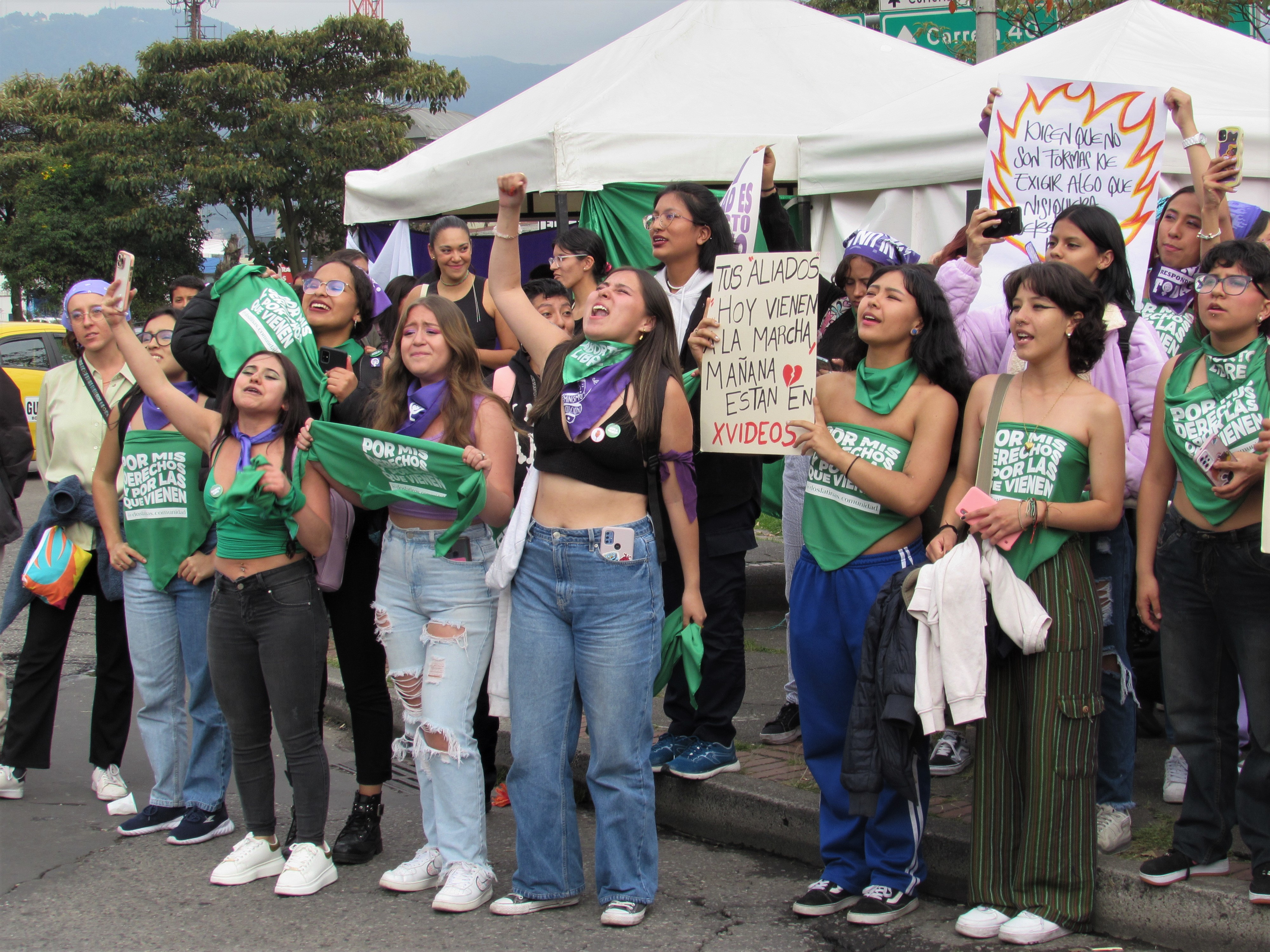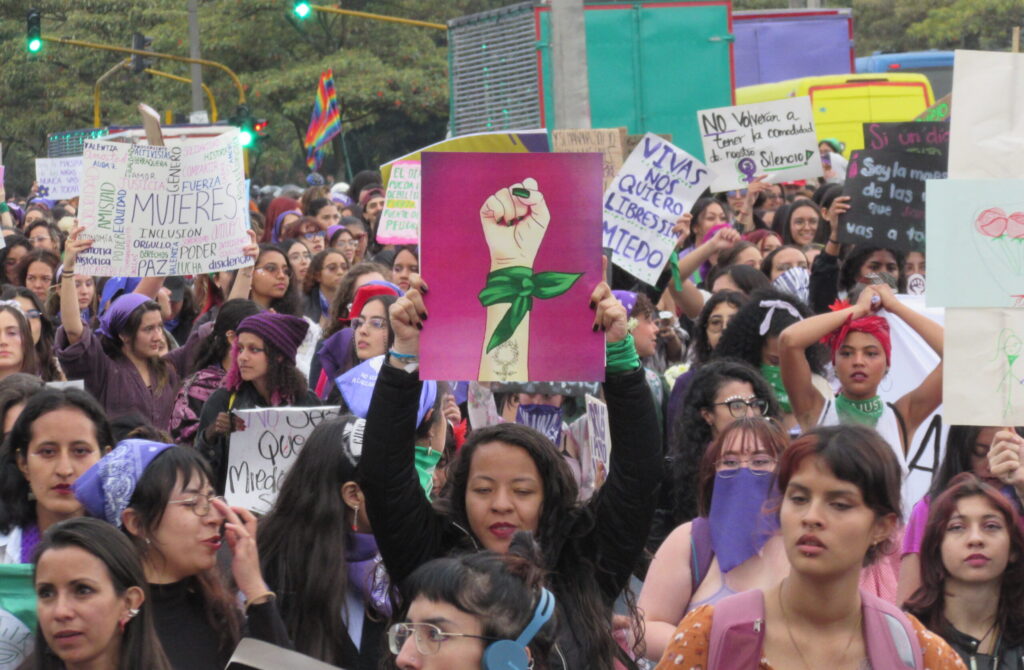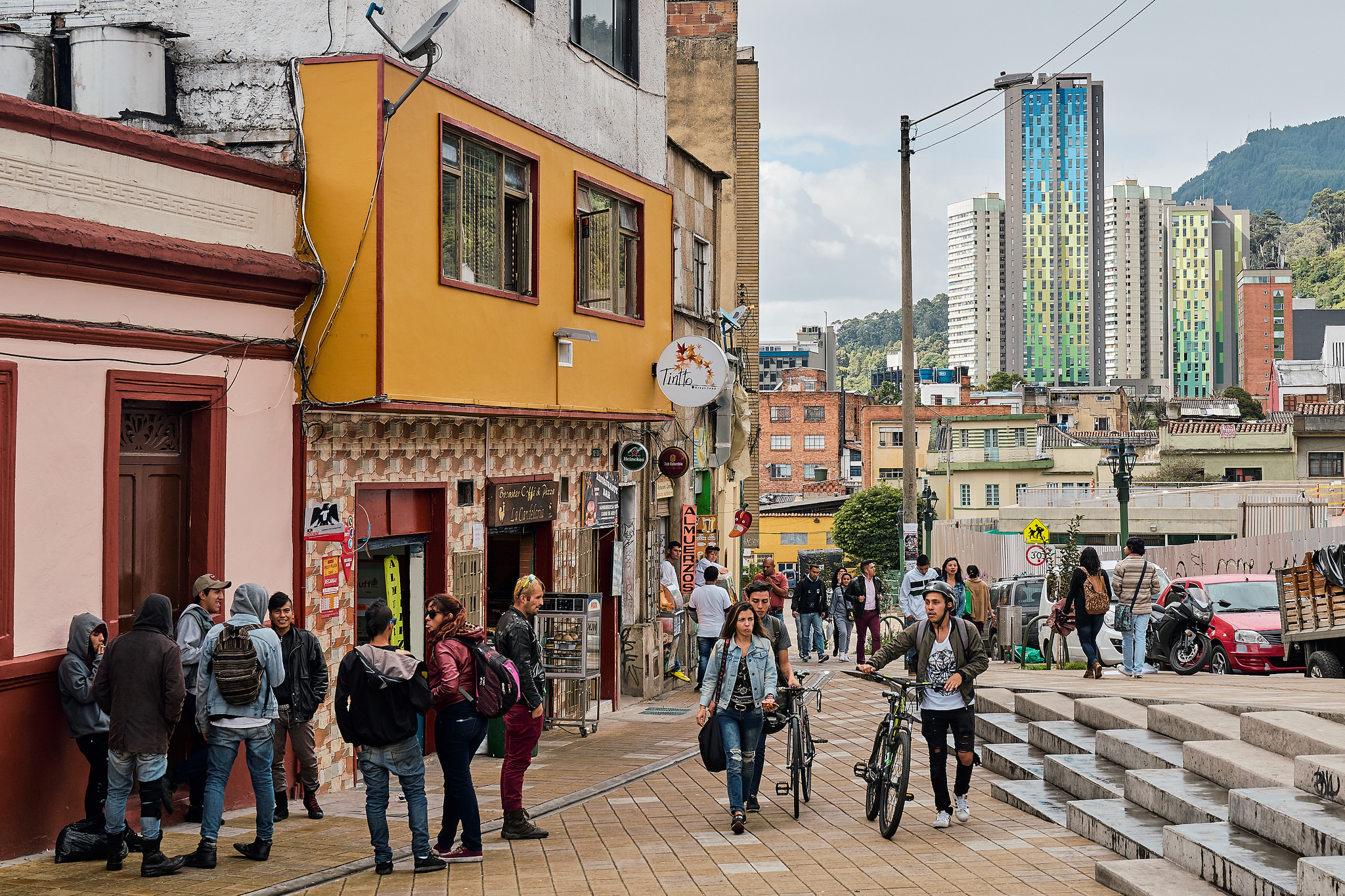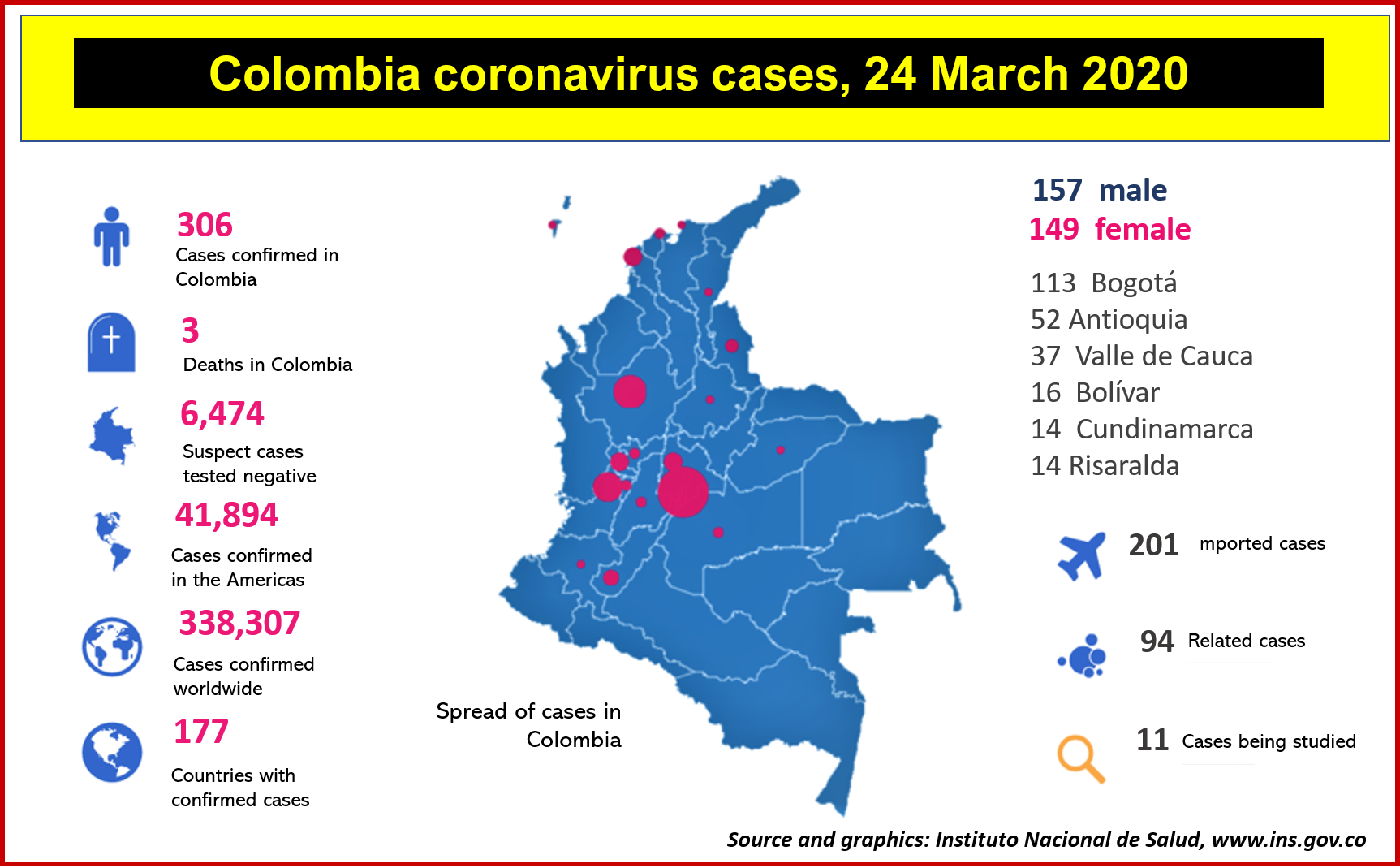
Campaigners say there’s a lot of work to do before abortion becomes truly accessible in Colombia.
On February 21, 2022, Colombia’s constitutional court made the landmark decision to overhaul the country’s reproductive rights legislation. In one fell swoop, the nation became the country with the most progressive abortion laws in Latin America.
The court decriminalised abortion, regardless of circumstance, for the first 24 weeks of pregnancy. Beyond that point, the right is limited to victims of rape or incest and cases in which the life of the pregnant person or child are in danger.
Despite the fervour of the Latin American pro-choice campaigners, Colombia’s liberal gestational limit is a regional outlier. Even its most progressive ally in the reproductive rights revolution, Argentina, can only boast on-request abortion access until the 14th week.
Campaigners greeted the court ruling with euphoria. However, while the law is extremely progressive on paper, in practice it is a different matter. Now that the dust has settled, campaigners say there are still huge institutional and cultural barriers for women seeking to exercise their newly won reproductive rights.
Causa Justa, the movement responsible for the legal challenge that resulted in the liberalisation of abortion access, are tracking the reality of the implementation. Earlier this year, it released a report taking stock of the successes and shortcomings of the past year. Two affiliated organisations – legal and informational support provider La Mesa and reproductive health clinic Oriéntame – pooled their data to piece together a picture of a legal groundshift that is yet to be fully borne out in social change.
We spoke to María Isabel Niño, a legal advisor for La Mesa, to discuss the barriers to abortion that are yet to be overcome. “We identified that the barriers to access that existed before the ruling still persisted during the course of this year,” she said.
An information void
Despite the intense media focus on abortion in recent years, one of the biggest challenges facing feminist campaigners is a persistent public knowledge deficit when it comes to reproductive rights.
La Mesa provides legal advice and practical information to people seeking an abortion. It recorded an almost 50% increase in the number of people seeking information in February 2022-23 compared to the year prior.
This increase can partly be put down to the influence of media coverage of the constitutional court’s decision. But María explains it also points to an underlying issue. “It’s certain that this could indicate that women are not obtaining this information from the health system and therefore have to search for it elsewhere”, she tells us. “[La Mesa] obviously can help contribute to the dissemination of this decision but it is the Colombian state through its organisations that is obliged to promote it.”
Notably, young people aged 12 to 19 made up 31% of all information requests in 2022-23. For Maria, this comes partly from the expansion of the right to abortion to people of all ages, but is also evidence of an issue within the education system. “They don’t talk about sexual and reproductive rights in schools nor in universities; there is no integral sexual education and therefore they have to search for information outside their schools via the internet or from women’s organisations like La Mesa,” she said.
This information void leaves pregnant women vulnerable to misinformation and malpractice. María points out that in many cases health professionals are applying a “restrictive interpretation” of the court’s decision. She says it doesn’t reflect what the court said, but that patients often lack the knowledge to recognise or challenge this violation of their rights.
“We know that in practice many health professionals demand that a woman have authorization from her parents,” she said. Other common practices include asking how many children a patient has already, enquiring about their civil status or insisting on a psychological assessment. Lines of questioning like these can deter and stigmatise pregnant people or in worst-case scenarios, may even be used to illegally deny access to an abortion.

Healthcare system failings
Another concerning issue is a serious lack of resources. “There are hospitals and clinics in Colombia that don’t have the medication to carry out an abortion,” María tells us. Surgical instruments and trained personnel are also often in short supply. This can result in delays or denials for those seeking abortions, which can have grave knock-on effects. Some may be forced to travel long distances or opt for unsafe forms of abortion or even be deterred from the procedure altogether.
The lack of trained personnel points to a deeper issue. Many universities in Colombia reportedly do not provide medical students with sufficient reproductive health training.
A 2018 study by Causa Justa analysed four of Bogotá’s principal university medical faculties. Researchers found that the majority of these faculties provided minimal education about sexual and reproductive rights. What’s more, in several institutions there were gaps in students’ knowledge about the surgical procedures and medications required to carry out an abortion.
Although the study’s dataset was limited to the capital, María warns this could be the case countrywide. This lack of education ensures that prejudices and stigma will persist within the healthcare system and, according to her, may contribute to rates of conscientious objection and the perpetuation of barriers to abortion.
“Obviously they don’t teach them due to social issues, due to stigma” María explains. “The Minister of Education has a huge challenge.”
Abuse of conscientious objection
Under Colombian law, medical professionals have the right to object to personally carrying out an abortion for ethical, religious or personal reasons. “The decision that the constitutional court took did not impact or eliminate or change the rules for the right to conscientious objection,” María clarifies.
Crucially objections must be submitted in writing and must not pose a barrier for someone seeking an abortion from a specific healthcare provider. If a health professional objects to carrying out an abortion, they must immediately refer patients to another staff member who can carry out the procedure.
Unfortunately, in reality, this legal requirement is too often not being fulfilled – as, María explains, in many cases “it is used in an incorrect or an unconstitutional manner.”
“We’ve found cases, for example, university clinics, where they claim they are institutional conscientious objectors, this is to say everyone in the clinic is a conscientious objector […] this is totally prohibited.” Every clinic must legally have a member of staff who is willing to carry out an abortion, but it appears this rule is not always enforced.
In other cases, Causa Justa have found that staff have been pressured to register as conscientious objectors by more senior members of staff. Once again this issue points to an institutional problem of stigma towards abortion within the health service.
Demographic vulnerability
The severity of barriers to abortion is significantly heightened for vulnerable people, particularly those with irregular migrant status.
Causa Justa observed in a 2022 study that many migrants lacked knowledge about their reproductive rights while living in Colombia. A lot of migrants are from countries with more repressive abortion laws. In Venezuela for example, the country with the biggest flow of migration into Colombia, abortion is punishable by up to two years in prison. Not only does this mean the weight of stigma may be heavier, but also that some migrants wrongly assume the same rules apply in Colombia.
Some migrants may fear they could be subjected to detention or deportation if they come forward. “Lack of knowledge, stigma, the illegality of abortion in their country and their irregular migratory status are the perfect context to fear being the object of criminal sanctions,” the report outlined. These concerns can be exacerbated by cases of doctors asking migrants for proof of migration documentation, a request that is not mandated.
This is exacerbated by poor healthcare access in several parts of the country. Causa Justa highlighted Cundinamarca, Nariño and Norte de Santander as areas where high migrant populations coincided with scarce healthcare provision. In many cases people asking for abortions are sent to other departments, often as far as Bogotá.
Economic and social vulnerability can make this a significant impediment for women seeking abortion. La Mesa recorded the case of a 37-year-old woman in Cúcuta, North Santander. She went ahead with an unwanted pregnancy because she could not find childcare for her young daughter whilst she attended the clinic she’d been referred to in Bogotá.
Similar issues also exist within rural communities, where higher rates of poverty paired with poorer health care availability have historically contributed to raised levels of teenage pregnancy. Social stigma may also prove more severe in these settings. Sexual health educators have even reported incidents of “threats and censorship” when attempting to work with communities in regions like El Chocó and Urabá.
What is being done to remove barriers to abortion in Colombia?
For Causa Justa, La Mesa and María herself there are two main tasks now: ensuring the “effective implementation of the sentences” and the “social depenalization of abortion.”
The Minister for Health took a step towards realising the first goal, bringing forward a resolution in January this year to try and eliminate some of the institutional barriers to abortion. It clearly set out the constitutional standards and technical rules regarding abortion provisions, including:
- Abortion should be treated as an “essential” and “urgent” healthcare service which should be provided immediately or in rare and justified cases, delayed up to a maximum of five days from the initial request for an intervention.
- The 24-week gestational limit on abortion refers to the date a patient requested an abortion, not the date on which a health service is able to carry it out.
- Adolescents and children have the right to decide to have an abortion without requiring permission from a parent or guardian.
- Migrants have the right to free abortion care within the Colombian healthcare system regardless of their immigrant status.
- Healthcare professionals are prohibited from providing misleading information, referring patients to counselling or requesting third-party permission e.g. from a spouse or parent.
There have also been key regional advances. For example, Bogotá’s alcaldía created a mesa técnica to ensure the implementation of the court ruling in the district. In Cali, the regional health secretary has put pressure on health services to remove barriers to abortion and special efforts have also been made to target problems facing migrants in Norte de Santander.
However, it remains to be seen if the introduction of yet more legislation and resolutions will translate into practical change. Campaigners have yet to see a concerted effort from government officials to tackle the challenges of social stigma and lack of knowledge. As long as these intertwined issues exist, people seeking abortions will continue to be vulnerable to medical malpractice and violations of their reproductive rights.
Causa Justa is clear, great progress has been made, but there is still work to be done before, in the words of María, the right to an abortion becomes “a reality for all women […] not just a historic ruling that remains on paper.”





